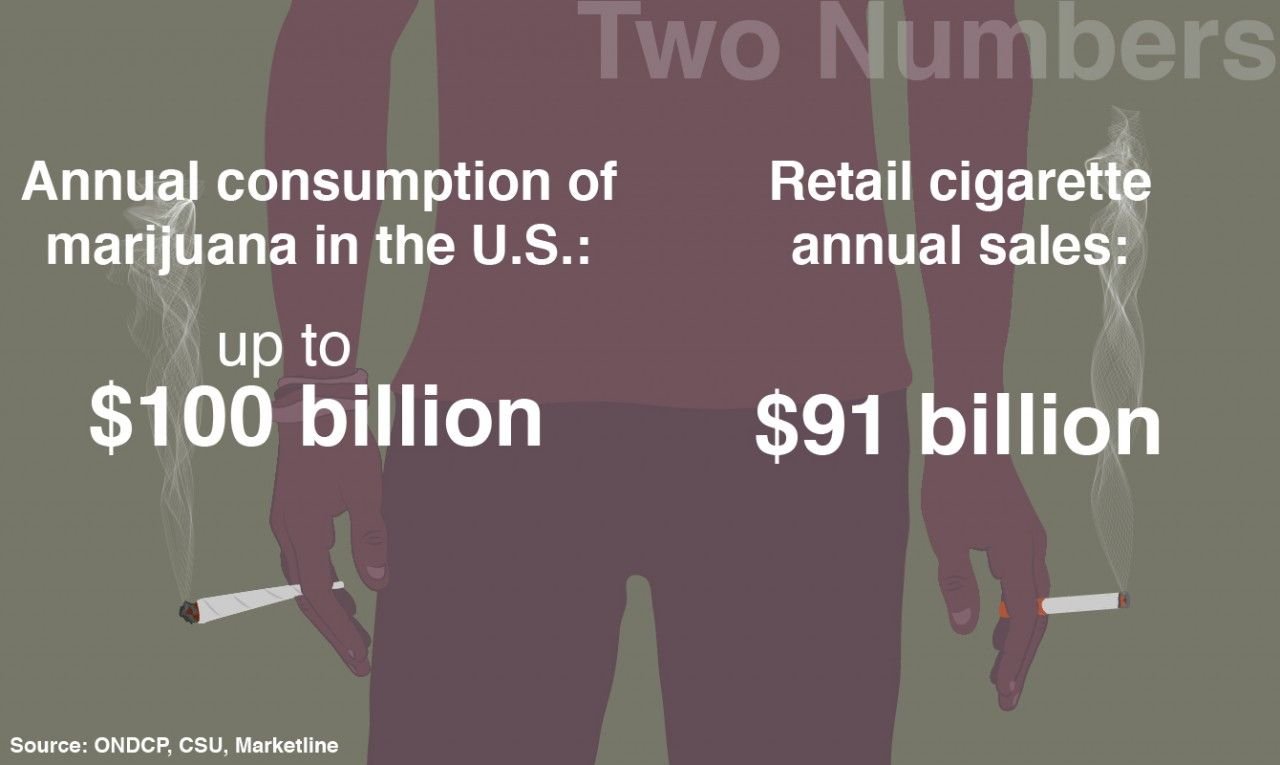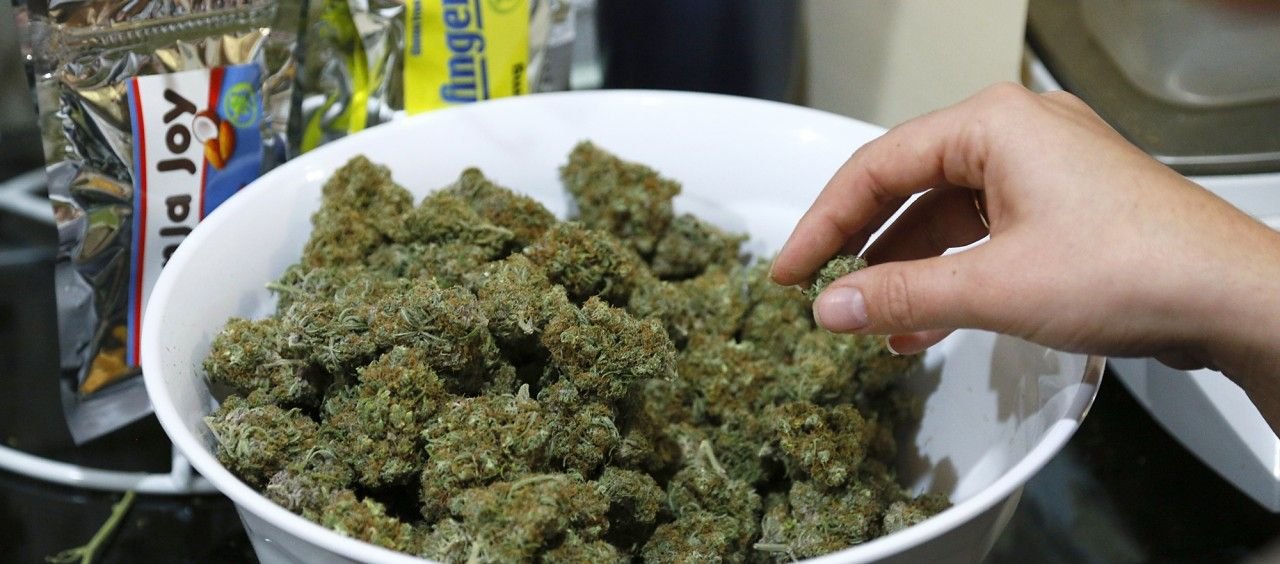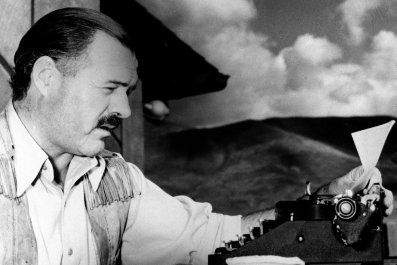
As 2014 begins, the United States may be ready to call it quits on its second major experiment with Prohibition. With both Colorado and Washington state now offering legalized marijuana use, it may be only a matter of time before pot is legal nationwide. Interestingly, the results of drug prohibition look pretty much the same as those that resulted from alcohol being outlawed in the 1920s - a spike in crime, lost tax revenue, but little effect on consumption.
For evidence look no further than the current size of the illegal marijuana market. Estimates vary, as calculating consumption accurately is tricky, but $33 billion is a conservative estimate. That's based on a street price of $185 an ounce and annual consumption of 180 million ounces, according to the Office of National Drug Control Policy.
Other estimates of the U.S. market alone range from $70 billion (the Campaign Against Marijuana Planting) to $100 billion (Jon Gettman, assistant professor at Shepherd University in West Virginia and marijuana researcher).
Even at the low end, the total is within shouting distance of the cigarette market, which stands at $91 billion. And it's not far from what Americans spend on beer in a year - $97 billion, according to the Beverage Information Group. With beer consumption declining and cigarette smoking out of fashion, it's possible legalized pot will be an even stronger competitor, legal or not.
The boost to the U.S. Treasury in taxes could add up to $9 billion, with additional savings on law enforcement, according to a study by the Tax Policy Center, but that may be conservative. A 2009 study by the California Board of Equalization estimated a marijuana tax could add $1.4 billion to the California economy.
That is not counting the taxes paid by legitimate businesses created by legalizing pot. Like it or not, marijuana is now the largest cash crop in the U.S., worth more than corn and wheat combined. As it comes out of the shadow economy, marijuana will become more efficient and favor big producers who can take advantage of economies of scale. So get ready for pot as big business. Right next to big alcohol and big tobacco.
























